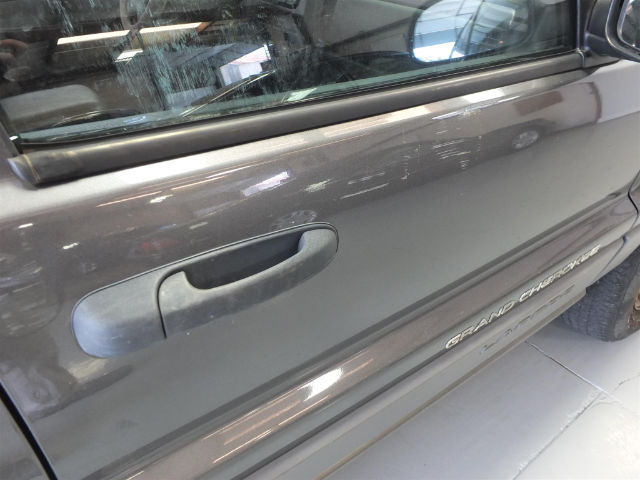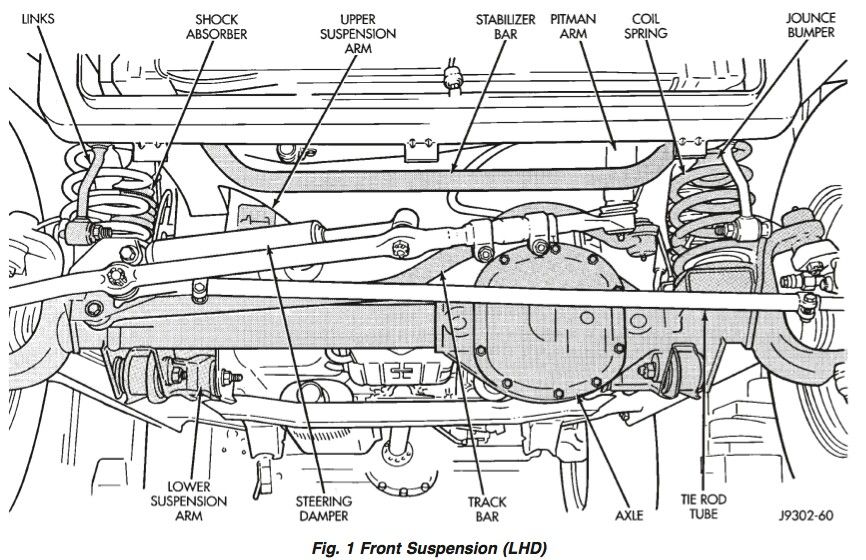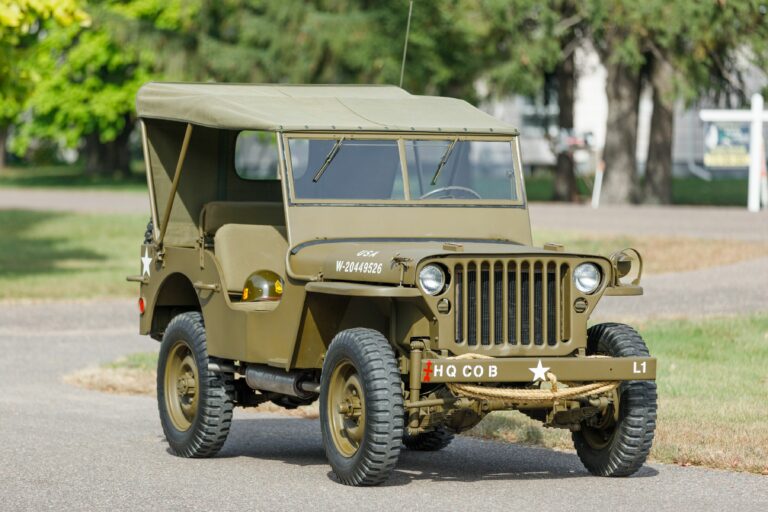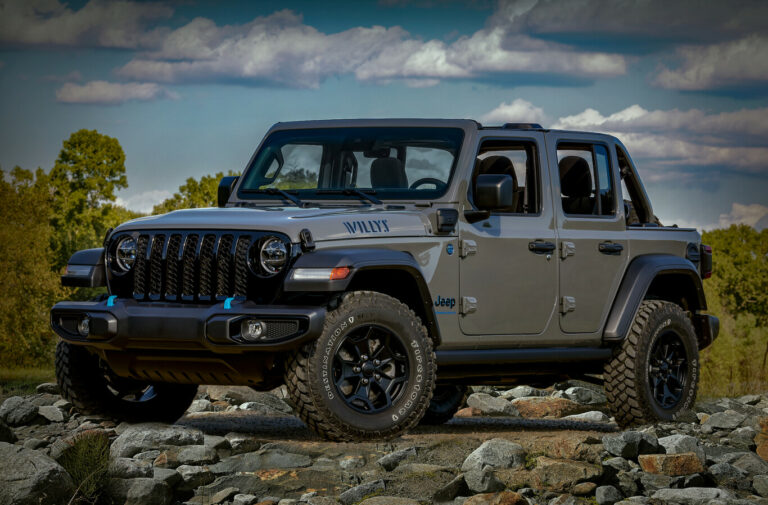2002 Jeep Grand Cherokee Laredo Engine For Sale: A Comprehensive Guide to Reviving Your WJ
2002 Jeep Grand Cherokee Laredo Engine For Sale: A Comprehensive Guide to Reviving Your WJ jeeps.truckstrend.com
The 2002 Jeep Grand Cherokee, part of the beloved WJ generation (1999-2004), holds a special place in the hearts of many SUV enthusiasts. Known for its robust capability, comfortable ride, and timeless design, the WJ Grand Cherokee Laredo was a popular choice for families and adventurers alike. However, even the most well-built vehicles eventually face the inevitable wear and tear of time and mileage. When the heart of your trusty 2002 Grand Cherokee Laredo – its engine – begins to falter, the prospect of an "engine for sale" becomes not just a search query, but a vital pathway to extending the life of a cherished vehicle.
This comprehensive guide delves into everything you need to know about finding, evaluating, and purchasing a replacement engine for your 2002 Jeep Grand Cherokee Laredo. Whether you’re a seasoned mechanic or a first-time engine buyer, understanding the nuances of this process can save you significant time, money, and headaches.
2002 Jeep Grand Cherokee Laredo Engine For Sale: A Comprehensive Guide to Reviving Your WJ
Understanding the 2002 Jeep Grand Cherokee Laredo and Its Engines
The 2002 Jeep Grand Cherokee Laredo typically came equipped with one of two primary engine options:
- 4.0L Inline-6 (I6) PowerTech: This legendary straight-six engine is renowned for its durability and simplicity. It’s a workhorse, offering reliable performance for countless Jeep owners. While generally robust, common issues at high mileage can include head cracks (especially around the #0331 casting), oil leaks, and sensor failures.
- 4.7L PowerTech V8: Offering more power and torque, the 4.7L V8 provided a significant upgrade in performance. However, this engine has its own set of well-documented potential issues, including "sludge" build-up (often due to infrequent oil changes or incorrect oil type), dropped valve seats, and sensitivity to overheating, which can lead to head or block damage.
Knowing which engine your Laredo has (check your VIN or under the hood) is the first critical step in your search for a replacement.
Why Replace Your 2002 Grand Cherokee Laredo Engine?

The decision to replace an engine is a significant one, often driven by several factors:
- Catastrophic Failure: A thrown rod, cracked block, severe overheating, or complete seizure can render an engine irreparable.
- Excessive Wear & Tear: High mileage leads to worn piston rings, bearings, and valve guides, resulting in excessive oil consumption, loss of power, and persistent misfires.
- Cost of Repairs vs. Replacement: Sometimes, the cost of diagnosing and repairing multiple complex issues on an old engine outweighs the cost of a complete replacement unit.
- Accident Damage: Front-end collisions can severely damage an engine or its critical components.
- Desire for Renewed Reliability: A fresh or remanufactured engine can give your beloved WJ a new lease on life, providing years of reliable service without the constant worry of breakdowns.

For many Grand Cherokee owners, the robust chassis, comfortable interior, and off-road capability of the WJ make an engine swap a more appealing and cost-effective option than buying a new vehicle, especially given the rising prices of modern SUVs.
Types of Replacement Engines Available

When searching for a 2002 Jeep Grand Cherokee Laredo engine for sale, you’ll generally encounter three main categories:
- Used Engines (Salvage/Junk Yards):
- Pros: Most affordable option. Readily available.
- Cons: Unknown history, mileage, and internal condition. No warranty or very limited warranty. Risk of buying another problem engine. May require extensive cleaning and new gaskets.
- Remanufactured Engines:
- Pros: These engines have been completely disassembled, inspected, cleaned, and rebuilt to original factory specifications (or better). Worn or damaged parts are replaced with new or re-machined components. They often come with significant warranties (1-3 years, unlimited mileage). Often include new wear items like pistons, rings, bearings, and gaskets.
- Cons: Higher cost than used engines.
- Rebuilt Engines:
- Pros: Can be done by local mechanics or specialized shops. Quality can vary greatly depending on the builder. May offer some customization.
- Cons: Warranty terms vary widely. Quality control can be inconsistent. Less standardized than remanufactured units. Often just address specific issues rather than a full overhaul.
New Crate Engines: While less common and significantly more expensive for a vehicle of this age, a brand-new engine from the manufacturer or an aftermarket performance builder might theoretically exist. However, for a 2002 Laredo, this is rarely a practical or cost-effective option.
Key Considerations When Buying a 2002 Jeep Grand Cherokee Laredo Engine
Making an informed decision requires careful consideration of several factors:
- Engine Code/Specifics: Absolutely verify if you need a 4.0L I6 or a 4.7L V8. Also, be aware that minor variations can exist within model years (e.g., sensor locations, accessory mounts). Providing your VIN to the seller can help ensure compatibility.
- Mileage (for Used Engines): Lower mileage is generally better, but always inquire about the source vehicle and its history. A vehicle totaled in a rear-end collision might have a perfectly good low-mileage engine.
- Condition & Testing:
- Used: If possible, see the engine run before removal, or at least get a compression test. Look for signs of leaks, excessive sludge under the oil cap, or milky oil (indicating coolant mixing).
- Remanufactured/Rebuilt: Inquire about the build process, what parts are replaced, and what testing procedures are performed (e.g., dyno testing).
- Warranty: This is paramount, especially for remanufactured and rebuilt engines. Understand the terms: duration, mileage limits, what it covers (parts, labor), and what voids it. A good warranty provides peace of mind.
- Seller Reputation: Buy from reputable salvage yards, remanufacturers, or engine suppliers with good reviews and a track record. Avoid sellers with vague descriptions or no contact information.
- Completeness of the Engine:
- Long Block: Typically includes the block, crankshaft, pistons, connecting rods, cylinder head(s), camshaft(s), and valve train. You’ll reuse your intake manifold, exhaust manifold, sensors, accessories (alternator, power steering pump, AC compressor), and wiring.
- Complete Drop-In: Includes everything needed to run, often with accessories, intake, exhaust manifolds, and sometimes even wiring harnesses. These are more expensive but simplify installation.
- Understand what’s included and what you’ll need to transfer or buy new.
- Shipping Costs: Engines are heavy. Factor in freight shipping costs, which can be substantial, especially for long distances.
The Installation Process: What to Expect
Engine replacement is a complex job, best left to experienced professionals unless you possess significant mechanical expertise and the right tools.
- Professional Installation:
- Cost: Labor costs can range from $1,000 to $3,000+, depending on your location, shop rates, and the complexity of the swap.
- Associated Parts: Beyond the engine itself, expect to replace various gaskets (intake, exhaust, valve cover), seals (rear main seal, front main seal), spark plugs, engine oil, coolant, oil filter, and potentially the water pump, thermostat, belts, hoses, and some sensors (crankshaft position, camshaft position, oxygen sensors). These "ancillary" parts can add several hundred dollars to the total cost.
- Downtime: A professional shop can usually complete an engine swap in 1-3 days, assuming no unexpected complications.
- DIY Installation:
- Requires an engine hoist, specialized tools, a detailed service manual, and a good understanding of automotive mechanics.
- Can be time-consuming and challenging.
- Risk of errors that could damage the new engine or the vehicle.
Maximizing the Lifespan of Your New/Replacement Engine
Once your new engine is installed, proper care is crucial to ensure its longevity:
- Break-In Period (for Remanufactured/Rebuilt): Follow the manufacturer’s recommendations carefully. This often involves specific driving styles, initial oil changes, and avoiding heavy loads for the first few hundred miles.
- Regular Oil Changes: Use the recommended oil type and viscosity. Adhere to the manufacturer’s service intervals, or even slightly more frequently, especially for the 4.7L V8 which is prone to sludge.
- Cooling System Maintenance: Ensure the cooling system is in top condition. Flush the coolant regularly, inspect hoses, radiator, and water pump. Overheating is a primary killer of both 4.0L and 4.7L engines.
- Tune-Ups: Replace spark plugs, air filter, and fuel filter as recommended.
- Address Issues Promptly: Don’t ignore warning lights, unusual noises, or leaks. Early diagnosis and repair can prevent minor issues from becoming major problems.
Practical Advice and Actionable Insights
- Do Your Homework: Research reputable engine suppliers and check their reviews.
- Verify Compatibility: Always double-check engine codes and provide your VIN to the seller.
- Prioritize Warranty: A strong warranty is your best protection against future issues.
- Budget for More Than Just the Engine: Account for shipping, installation labor, and all necessary ancillary parts.
- Consider the Source: If buying used, ask about the donor vehicle’s history.
- Get a Written Quote: For both the engine and installation, get everything in writing.
Concluding Summary
Finding a 2002 Jeep Grand Cherokee Laredo engine for sale represents an opportunity to breathe new life into a capable and beloved vehicle. By understanding the different engine types, their common issues, the various replacement options (used, remanufactured, rebuilt), and the critical considerations for purchase and installation, you can make an informed decision. While the process requires careful planning and a significant investment, a well-chosen replacement engine, coupled with diligent maintenance, can provide many more years of reliable service from your iconic WJ Grand Cherokee. It’s an investment in extending the journey, not just replacing a part.
Estimated Price Table for 2002 Jeep Grand Cherokee Laredo Engines
Please note: Prices are estimates and can vary significantly based on supplier, location, mileage (for used), warranty, and current market conditions. Shipping costs are typically extra.
| Engine Type | Engine Size | Estimated Price Range (Engine Only) | Typical Inclusions | Key Considerations |
|---|---|---|---|---|
| Used Engine | 4.0L I6 | $600 – $1,500 | Long block (block, head, rotating assembly). May or may not include intake/exhaust manifolds, accessories. | Lowest cost, highest risk. Mileage, vehicle history, and condition are unknown. Minimal to no warranty (e.g., 30-90 days start-up only). Best for those on a tight budget or with good mechanical inspection skills. |
| 4.7L V8 | $800 – $2,000 | Long block (block, heads, rotating assembly). May or may not include intake/exhaust manifolds, accessories. | Higher risk due to 4.7L’s known issues. Thorough inspection (compression, oil sludge check) is crucial. Minimal to no warranty. | |
| Remanufactured Engine | 4.0L I6 | $2,500 – $4,000 | Long block (fully rebuilt with new wear parts, machined surfaces). Often includes new oil pump, timing chain. | Best balance of quality and value. Comes with a substantial warranty (1-3 years, unlimited mileage common). Higher initial cost, but significantly reduces risk. Often requires core return. |
| 4.7L V8 | $3,000 – $5,000 | Long block (fully rebuilt with new wear parts, machined surfaces). Often includes new oil pump, timing chain. | Recommended for the 4.7L due to its common failure points; remanufacturing often addresses these weaknesses. Comes with a substantial warranty. Higher initial cost. Often requires core return. | |
| Rebuilt Engine | 4.0L I6 | $2,000 – $3,500 | Varies widely by builder; usually long block. Quality depends on the shop. | Quality and warranty vary greatly. Often performed by local shops. Good if you trust a specific local rebuilder. May not replace all wear items like a remanufactured unit. |
| 4.7L V8 | $2,500 – $4,500 | Varies widely by builder; usually long block. Quality depends on the shop. | Similar to 4.0L rebuilt; due to the 4.7L’s complexities, ensure the rebuilder has specific experience with this engine and addresses its known weaknesses (e.g., valve seats, sludge prevention). | |
| Installation Labor Cost | Both Engines | $1,000 – $3,000 | Labor to remove old engine and install new one. | This is a significant additional cost. Varies by shop hourly rate and complexity. Does not include cost of fluids, gaskets, or other ancillary parts. |
| Ancillary Parts | Both Engines | $300 – $1,000+ | New fluids (oil, coolant), filters, spark plugs, various gaskets/seals, belts, hoses, possibly water pump, thermostat, sensors. | Essential for a successful and long-lasting swap. These parts are often replaced during an engine swap to ensure everything is fresh and compatible with the new engine. |
Frequently Asked Questions (FAQ)
Q1: What’s the main difference between a remanufactured and a rebuilt engine?
A1: A remanufactured engine is typically disassembled to its bare components, thoroughly cleaned, inspected, and then rebuilt to original factory specifications (or better) using new or re-machined parts for all wear items. They often come from specialized facilities and carry robust warranties. A rebuilt engine can vary widely; it might be a full overhaul or simply addressing specific issues, often done by a local machine shop. The quality and parts replaced are less standardized, and warranties tend to be shorter or less comprehensive.
Q2: How much does engine installation usually cost for a 2002 Grand Cherokee Laredo?
A2: Installation labor typically ranges from $1,000 to $3,000, depending on the shop’s hourly rate, your location, and whether there are unforeseen complications. This cost is in addition to the price of the engine itself and the ancillary parts (fluids, gaskets, etc.).
Q3: What kind of warranty should I look for when buying a replacement engine?
A3: For remanufactured engines, look for a warranty of at least 1 year, and ideally 2-3 years, with unlimited mileage. Ensure it covers both parts and labor (at a specified rate). Understand what conditions might void the warranty (e.g., improper installation, lack of maintenance). For used engines, warranties are usually very limited (e.g., 30-90 days, parts only).
Q4: Can I put a 4.7L V8 engine into my 2002 Grand Cherokee Laredo that originally had a 4.0L I6?
A4: While technically possible, it is a highly complex and expensive undertaking. It’s not a direct swap. You would need to change the transmission, engine computer (PCM), wiring harness, engine mounts, exhaust system, and potentially other components. It’s almost always more practical and cost-effective to replace the engine with the same type that originally came with the vehicle.
Q5: Are there any common issues I should address during the engine swap?
A5: Yes! It’s an ideal time to replace wear items that are difficult to access when the engine is in place. Consider replacing:
- Water pump and thermostat: Essential for cooling system health.
- Engine mounts: Ensure proper support and reduce vibration.
- Spark plugs and ignition coils: For optimal performance.
- All belts and hoses: Prevent future leaks or failures.
- Sensors: Especially the crankshaft position sensor and camshaft position sensor, which are critical for engine operation and can fail with age.
- Rear main seal: If not included with the engine, it’s easier to do during the swap.
- Flexplate/Flywheel: Inspect for cracks or wear.





